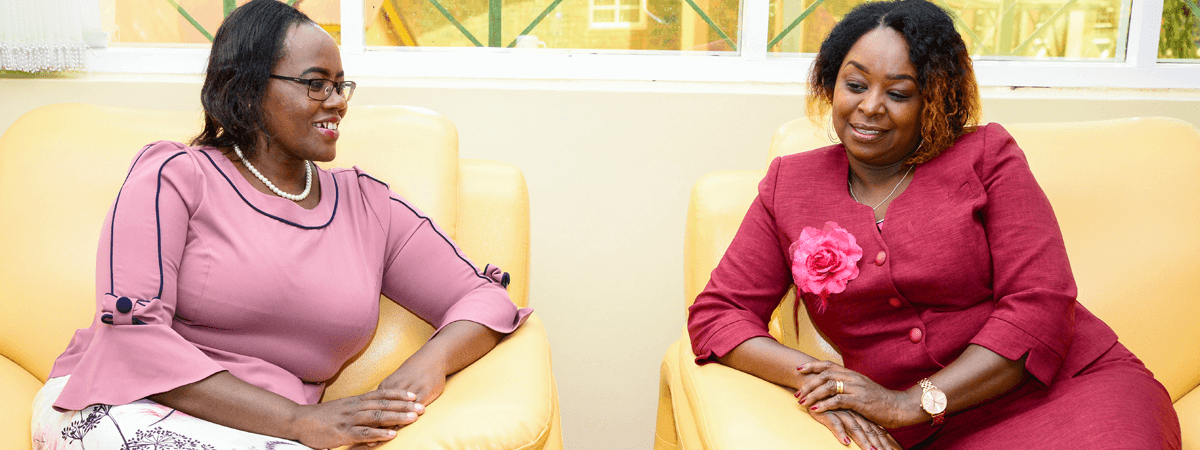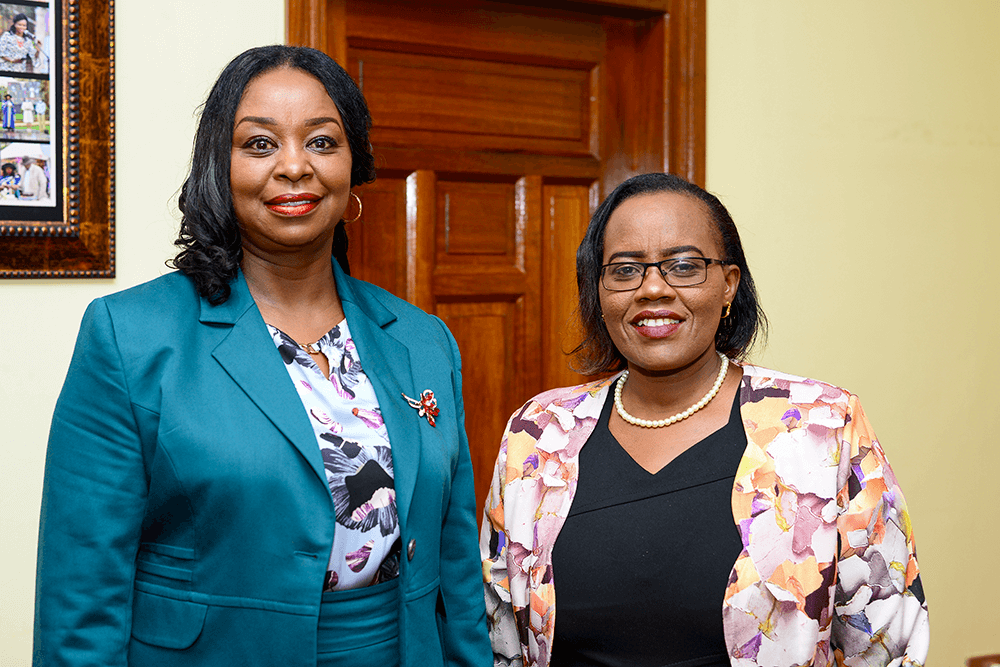
Disability can occur in various ways. It can be because of congenital defects before or during birth, while acquired disability can happen at any stage of someone’s life. Human life is surrounded by constant danger meaning we are disability candidates. These facts are stubborn and painful but that is the nature of realities to humans and they mostly do not conform to human expectations. Knowledge about disability implore our rationality to open our minds to what is really beyond our control than to succumb to our irrational emotions. “A person with any disability is entitled to be treated with dignity and respect and be addressed and referred to in a manner that is not demeaning.” This is the opening statement among others in article 54 of Kenya’s Supreme Law – the Constitution 2010. Today, apart from this constitutional birthright to any person living with a disability, two university dons have taken upon themselves to fulfil some of the obligations stipulated therein.
One might point out they are inspired by motherly instincts, level of education or their stellar careers in respective fields, which have motivated them on the need to educate society on why people are equal regardless of our general opinions. Whatever their motivations are, the best impression is on this work Mount Kenya University dons are doing.

Many African societies have associated disability as a bad omen and linked such families to witchcraft and sorcery. Some societies have crowned upon themselves as the prosecutors, persecutors and punishers of whom they deem unfit to survive due to their creative diversity. The right to life, in all spiritual realms, is divine and that should be left to the Higher power to decide. Discrimination and ex-communication from societal organs and threat to life yield anguish, self-pity and feeling of disempowerment. Families who have members with special needs feel betrayed by the very people they wish they would help. Society should do not exist to judge and punish but to enhance social interaction and development.
Dr. Jane Nyutu, Director of Mind and Beyond Counselling Centre, observes that this feeling of being a burden to the society might throw victims into depressive and suicidal thoughts and if not addressed, the victims might actualize. Dr. Jane adds, “Societal support and family love are vital to everyone’s identity.” She extends that, “support to people living with a disability is also vital in enhancing their self–acceptance. These basics will go a long way in helping them rise beyond disability.”
Traditional beliefs on disability were anchored on being disabled. The PWDs were viewed as less able to achieve their potential nor could they possess any ability to build meaningful relationships in society. This traditional view of PWDs still exists, with PWDs still seen as less important and as people who cannot play an active role in their surroundings.
Dr. Serah Kimaru, Dean of Social Sciences and the Coordinator of PWDs union at the University, observes that society is responsible for disabling people living with a disability. “People with disability are not disabled; it is the society that is disabled and the process disabling them.” Says Dr. Serah. “PWDs should be given opportunities to maximum on their ability,” she adds, “We need to stop concentrating on one’s disability. Let us focus on the worth and values they have.” Indeed physical or internal challenges that PWDs may experience do not make them lesser beings or less productive in society.
In the TV47’s Saturday evenings program christened Beyond the Limit, these social scientists raise pertinent issues that society has ignored for a long time, which we do not have an alternative but to engage. Different experiences highlighted by the Show’s guests throw one into a volley of thoughts especially on the value for humanity, and what can it cost to understand that people are abled differently. Through these dons’ professional guidance, society gets an opportunity to learn ways in which they can help to fight prejudices and bad attitudes that can disable the dreams of PWDs.

Dr. Serah and Dr. Jane are in unison that helping persons with disability should not be limited to monetary support. The dons’ advocacy against systematic exclusion, giving equal opportunities, enhanced independence are some of the social constructs that we can deconstructed through simple means. Kindness is a gesture that we can all afford. People need help at some point if not always in their lives. Society can no longer afford to treat PWDs with contempt that they belong to the streets; they are not born to be beggars.
The government and individuals also have a responsibility to meet the need of every citizen. Ensuring easy access in public spaces, businesses and building equal employment opportunities where everybody has a chance to reach their full potential. Collectively society should demystify myths, attitudes and perceptions to improve human experience of everyone where everyone feels a sense of belonging. By doing this the spirit of our constitution will have more meaning to the entire society.
We can have more success stories such as that of Jessica Cox, the first armless licensed pilot in the world, a Taekwondo black belt holder, pianist, a successful scuba diver, wife and a mother. Jessica lives a life we can all wish. Hers is a clear picture of what everyone would wish to achieve. Finally, if society fights these physical barriers imposed on PWDs and those that separate relations, we can pursue productive paths of seeing the people from whom they are, which is human.
Article by
Dr. Serah Kimaru- Muchai, Dean School of Social Sciences
&
Mr. Koome Ikunyua, Journalism and Mass Communication Department












